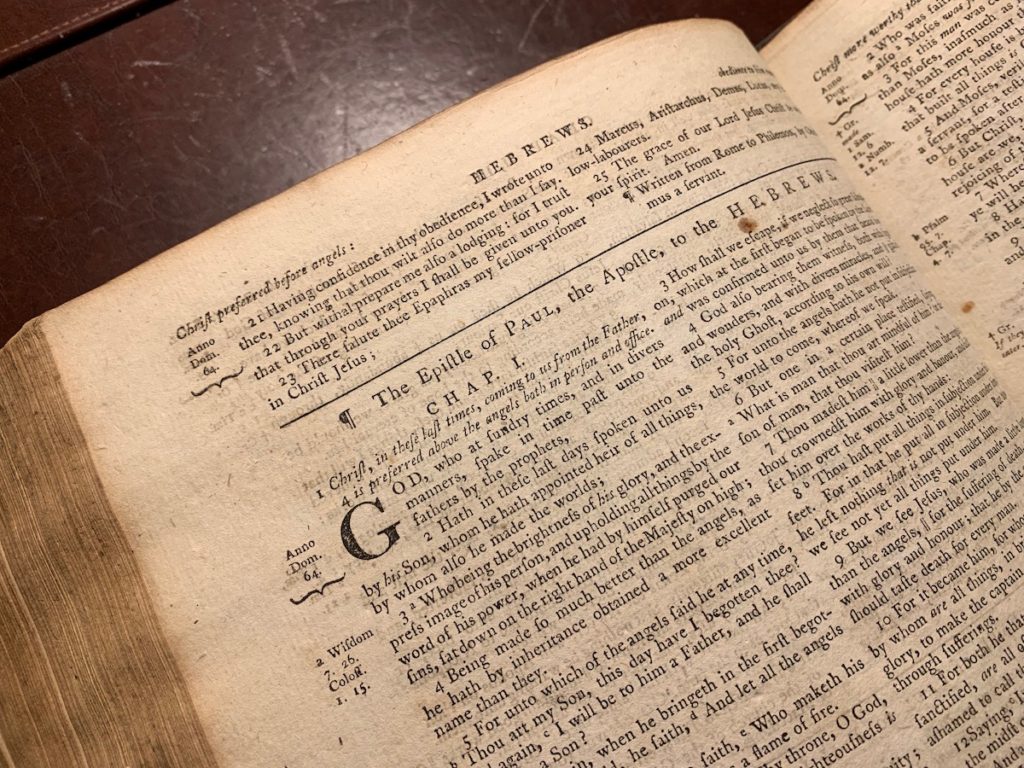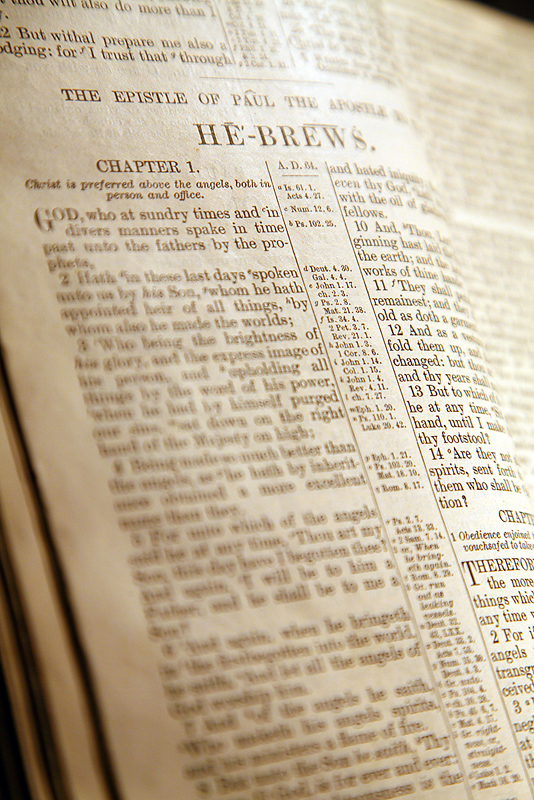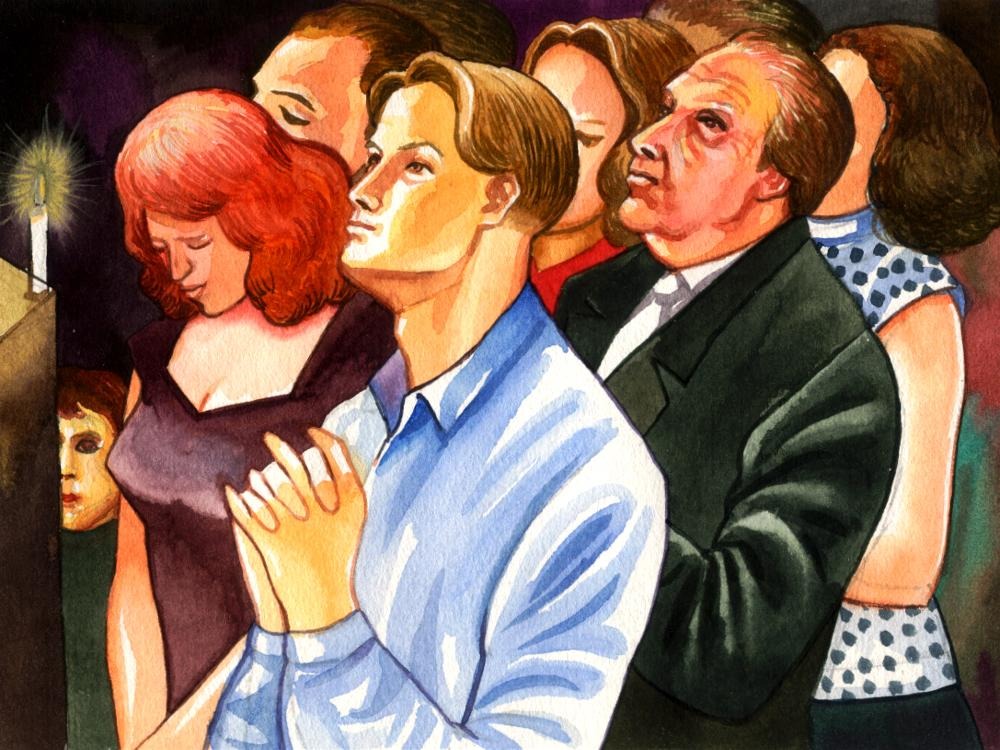
Hebrews 5
Hebrews 5:2, Ignorant and going astray. Or ignorantly erring.
Hebrews 5:6, Order of Melchizedek. Or King of Righteousness. This is the original priesthood that YHVH established to represent him on the earth and to teach humans his ways. This was a patriarchal priesthood where the heads of families or tribes passed down YHVH’s Truth to their children. This priesthood was temporarily replaced by the Levitical priesthood which was established after the golden calf incident when the tribal leaders failed to prevent their families from turning away from YHVH for idolatry. When Yeshua established the apostolic church and with the destruction of the Second Temple along with the priesthood, the Levitical system ended. The apostolic writers reveal that the priesthood belongs to the saints, who are to become kings and priests, a kingdom of priests or a royal priesthood (1 Pet 2:5, 9; Rev 1:6; 5:10; 20:6). It appears that both the Melchizedek and Levitical priesthoods will be operating contemporaneously for a while during the Millennium (Isa 66:21). The saints will be ruling and reigning under Yeshua the King of kings-High Priest co-reigning with him in his eternal kingdom, which will be universally established with the advent of his millennial reign after his second coming. It was always YHVH’s will for his saints to become a kingdom of priests to evangelize the world (Exod 19:6), but the Israelites failed in this endeavor.
Hebrews 5:9, Having been perfected. This verse begs a question: How could Yeshua be perfected when he was already perfect? To understand the meaning of this phrase, one has to look into the meaning of words. A word may mean one thing in one language and something completely different in another language. In English, the primary meaning of the word perfect is “having all the required or desirable elements, qualities, or characteristics; as good as it is possible to be; free from any flaw or defect in condition or quality; faultless.” By contrasts, in biblical Greek, the word perfect is teleioō meaning “to complete, that is, (literally) accomplish, or (figuratively) consummate (in character).” As it is plain to see, between the English and the Greek, the word perfect has two completely different meanings. Yes, Yeshua was perfect, sinless and without any spiritual defect or fault, yet in his humanity, he learned what it was like to struggle against and to overcome the world, the flesh and devil and the temptations to sin. This experience allows him to be the saints’ perfect Great High Priest advocate or defense attorney in the court of heaven before or at the right hand of the throne or judgment seat of YHVH Elohim.
Hebrews 5:11, Dull of hearing. This seems to be perennial problem among the saints and is akin to “a famine of the hearing of the word of Elohim” (Amos 8:11 cp. Isa 29:13)
Hebrews 6
Hebrews 6:1, Elementary principles of Messiah. What follows are the six principal doctrines of the redeemed believer, yet they are all subsets of faith in Messiah Yeshua, which is foundations upon which it all rests.
Repentance from dead works.True biblical repentance involves turning from a lifestyle of Torahless and lining all aspects of our lives up with the Torah-Word of Elohim.
Hebrews 6:2, Doctrine of baptisms. (Also see notes at Matt 28:19.)
Laying on of hands. Ordination is something that YHVH instituted in the Torah when he charged Moses to impose hands upon the Levites, and instructed all Israel to do the same (Num 29:10). We also have the example of Moses anointing with oil Aaron (Exod 29:10). Of course, kings of Israel were also anointed with oil to consecrate them for their official duties by the laying on hands.
Laying on of hands/ordination was earth’s confirmation of a heavenly calling. Elohim had already called someone into ministry and men were simply confirming what Elohim had already determined. Ordination doesn’t confirm the calling, but the other way around.
In the Testimony of Yeshua, by lot, the 11 apostles chose Matthias to replace Judas (Acts 1). This was heaven’s choice, yet no mention of ordination is recorded. After that, we have the choosing of the seven in Acts 6:1. These were men who were already full of the Spirit and wisdom, so the apostles simply confirmed the work of the Spirit in them by laying hands on them (verse 6).
The same is true in the other examples of ordination in the Apostolic Scriptures. Men would be mentored by a leader/apostle, and after a period of time (“lay hands on no one suddenly” 2 Tim 5:22)—much like the five years of mentoring that occurred with a priest in training in the Torah (from age 25 to 30), and after meeting the qualifications of eldership (see 1 Tim 3:1–12 and Tit 1:5-9) they were appointed. Of course, those who were the mentors had oversight over those they mentored. It was less of a authoritatively-hierarchical system and more of patriarchal system with the older men lovingly overseeing those they had raised up — and only exercising strict authority when needed, which occurred only rarely.
Of course, there was no such thing as licensing or even denominations which issue licenses in the Apostolic Scriptures. To me, that seems more like a man-made thing for the purposes of maintaining power, control and keeping the money flowing upward.
In the entire Bible, there are no examples of or precedence for women being ordained. Paul says in 1 Timothy 5:22 “to lay hands suddenly on no man.” He is gender specific. Women did, however, minister in conjunction with their husbands — their spiritual heads, which is something Paul is very clear about in Ephesians 5:21–24. Even though in the body of Yeshua there is neither male nor female so that all are equal before Yeshua, when it comes to governance in the congregation, the Bible upholds male leadership. Now that doesn’t mean that women can’t hold high positions of authority, but always in conjunctions with their husbands. We have the example of the apostolic team of Andronicus (husband) and Junia (wife) whom Paul called apostles (Rom 16:7), Aquila and Priscilla who were co-laborers. Sometimes Priscilla’s name is mentioned first. Obviously, this husband and wife team were such a tight unit that it didn’t matter whose name was mentioned first. Of course, we have examples in the Scriptures of women prophets. Deborah, though she was a judge in Israel, seems to have been married to Barak the military general. If so, we have an apostolic-prophetic team operating together to lead the Israelite nation. Huldah was a prophetess who seemed to operate without male headship, though she hung out with other prophets in a “school” or neighborhood where the prophets lived. So there was must have been some accountability between her and the other prophets, although she was the most gifted of YHVH since hers is the only name mentioned. Then we have the daughters of Philip the evangelist who were prophetesses—again, presumably under the spiritual leadership of their father (Acts 21:8-9).
Hebrews 6:6, If they fall away, to renew.
Is the “Once Saved Always Saved Doctrine” Biblical?
Continue reading





